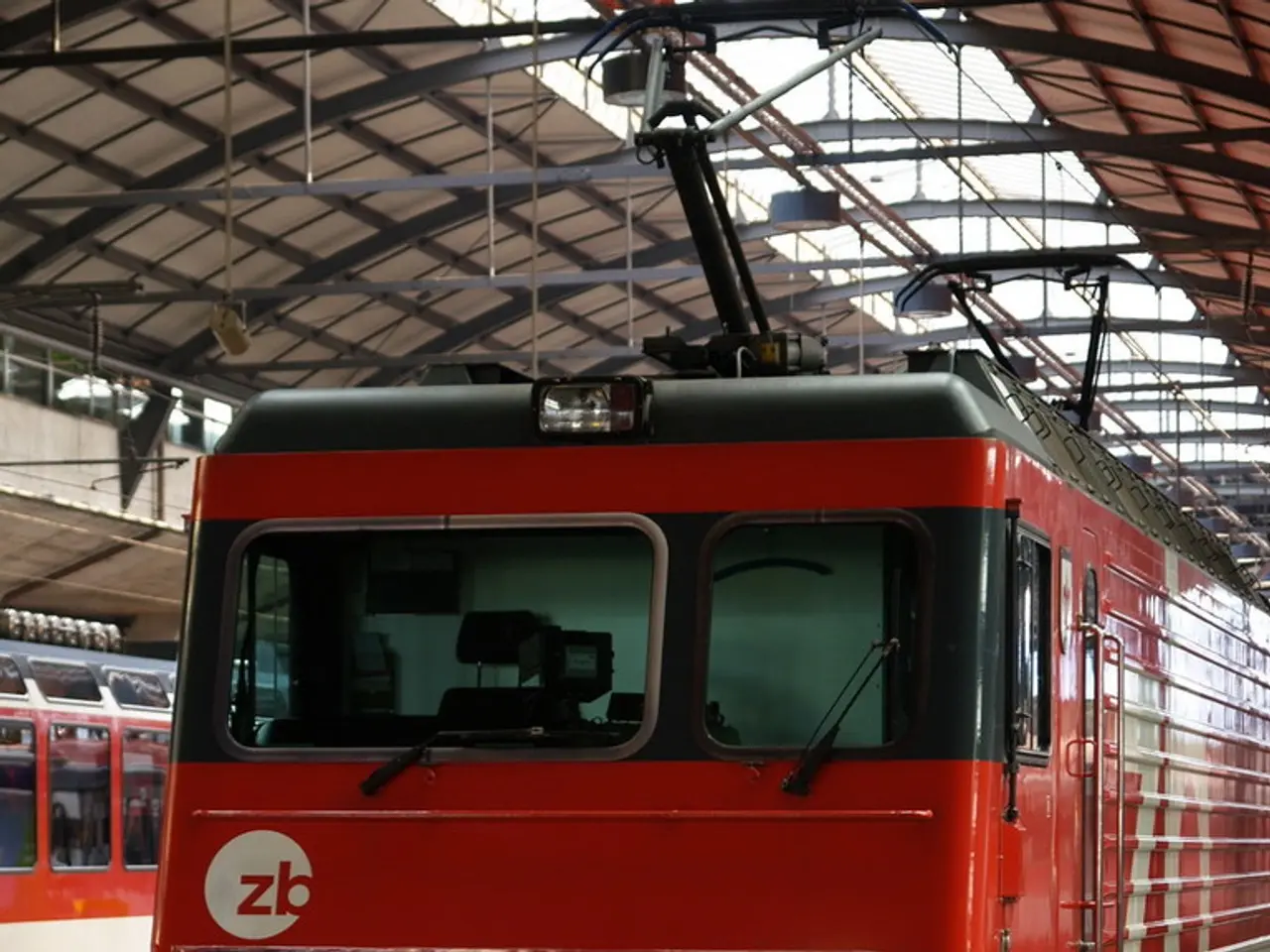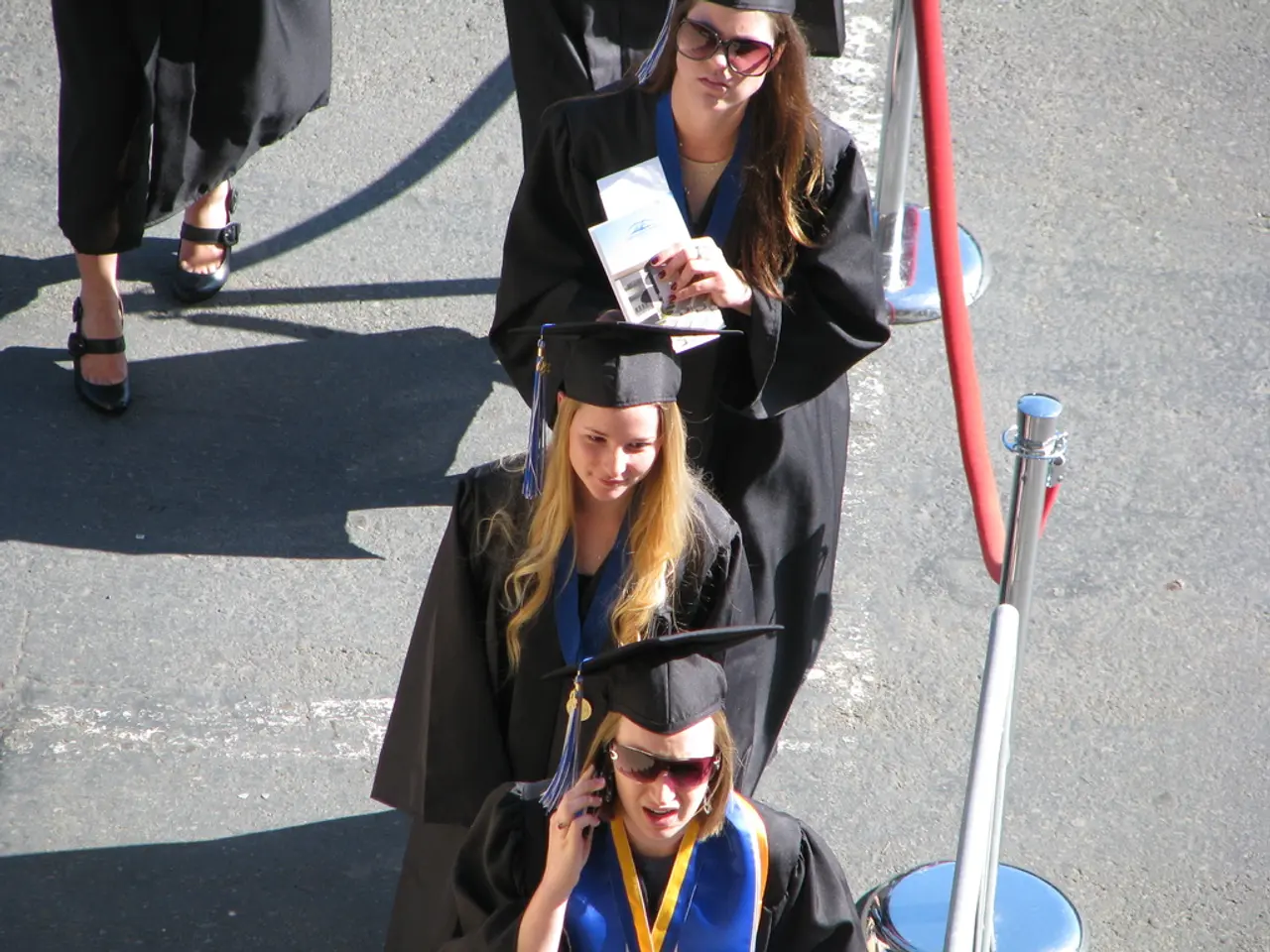Expanding the scholarly discourse on the Kakori Train Heist: Relatives of the Revolutionaries Call for More Study
In a significant move, the Kakori Train Action - a symbolic episode of India's freedom struggle - is being considered for inclusion in the academic curriculum. This event, which took place on August 9, 1925, near Lucknow, Uttar Pradesh, was a meticulously planned armed robbery by members of the Hindustan Republican Association to seize British government treasury funds being transported by train [1][5].
More than a mere heist, the Kakori Train Action was a deliberate strike against colonial economic resources, a bold move to fund the armed struggle for independence. The event was led by prominent revolutionaries such as Ram Prasad Bismil and Ashfaqullah Khan, and it stood out for its demonstration of Hindu-Muslim unity during a period when British policies sought to divide people on communal lines [1][2].
The inclusion of the Kakori Train Action in the academic curriculum is being advocated for several key reasons:
- Historical Significance: The Kakori Train Action marked a turning point in India’s freedom movement, nurturing revolutionary sentiment in Lucknow and beyond [3].
- Inspiration and Role Modeling: The courage, sacrifice, and unity shown by young revolutionaries serve as role models for resilience and patriotism [3][4].
- Promotion of Communal Harmony: The event is a rare example of Hindu-Muslim collaboration in the freedom struggle, highlighting the importance of unity in diversity for national progress [1][2].
- Understanding Revolutionary Methods: It exposes students to the multiplicity of freedom struggle strategies, including armed resistance in contrast to non-violent movements [4][5].
- Connecting Local to National History: Since the event happened near Lucknow, it instills local pride while connecting regional history to broader national narratives [3].
- Economic and Political Awareness: The incident underlines how colonial exploitation was challenged not only politically but economically, giving learners insight into the multidimensional resistance against colonialism [1][5].
For future generations, learning about the Kakori Train Action through academic curriculum can deepen understanding of India's independence movement beyond well-known figures and non-violent protests. It encourages critical engagement with diverse forms of resistance, the complexity of colonial history, and the shared heritage of courage that transcended communal divides. This breadth of knowledge is vital for cultivating informed, responsible citizens aware of the sacrifices and unity that shaped modern India.
Several voices have been raised in support of this initiative. Rajeev Singh, the grandson of Thakur Roshan Singh, suggests that more research should be done on the Kakori Train Action at the university level [6]. Afaqullah Khan, the grandson of revolutionary Ashfaqullah Khan, suggests that the Kakori Train Action should be included as a chapter in the curriculum from Class 8 to Class 12 [7]. Rohit Khatri advocates for the inclusion of the Kakori Train Action in NCERT textbooks [10].
In addition, Meeta Bakshi mentions the celebration of the Kakori anniversary at Babasaheb Bhimrao Ambedkar University in Lucknow and suggests increasing the ambit of the Kakori Train Action in the curriculum [8]. Khatri also proposes the development of Kakori Shaheed Mandir as a tourist place and suggests having a trained guide for accurate information [9].
Moreover, Afaqullah Khan believes that teaching the Kakori Train Action as a specialized topic at the university level could serve a purpose, but only if questions about it are asked in various examinations [7]. He also states that remembering revolutionaries beyond their birth anniversaries, death anniversaries, and a few other special dates is important [11].
In 2021, the Uttar Pradesh government renamed the Kakori Train Action as the Kakori Train Action [12]. The anniversary celebrations included a quiz contest and posters, aiming to engage students and increase awareness about this significant event [13].
In conclusion, the inclusion of the Kakori Train Action in the academic curriculum is a step towards a more comprehensive understanding of India's freedom struggle. It offers an opportunity to delve into the complexities of colonial history, appreciate the diverse forms of resistance, and celebrate the shared heritage of courage that transcended communal divides.
- India's government, in considering the Kakori Train Action for inclusion in the academic curriculum, aims to educate future generations about a historic event that was more than just a heist – it was a bold strike against colonial economic resources, a key turning point in India's freedom movement, and a rare example of Hindu-Muslim unity [1][2][3].
- In the education-and-self-development sector, incorporating the Kakori Train Action into curriculum from Class 8 to Class 12 could serve as an inspiration for students, illustrating courage, sacrifice, and unity shown by revolutionaries such as Ram Prasad Bismil and Ashfaqullah Khan [3][4][7].
- By understanding the Kakori Train Action in the context of India's independence movement, learners can gain a broader perspective on resistance strategies and the multifaceted struggle against colonialism, fostering informed, responsible citizens mindful of the shared heritage that shaped modern India [1][5][6].




